The thousands of people in the UK who own 'worthless' apartments
- Alejandra Martins
- BBC World News
Natasha Foulkes-Arellano: "Sometimes I feel sad, sometimes angry. It is not good for your health to live in a dangerous building."
"I have been in this terrible situation for two and a half years and it will probably take years for this to be resolved."
"I am a prisoner in my dangerous apartment."
After years of savings and many financial sacrifices, Natasha Foulkes-Arellano and her boyfriend managed to buy an apartment in the city of Manchester, England.
"It was a very proud moment for me. I always wanted to have my own home," said Natasha, who was born in Mexico and works with human resources, to BBC News Mundo, the BBC's Spanish service.
atasha's building does not comply with the new fire prevention regulations introduced in the UK after the Grenfell Tower tragedy, which took place in London in 2017.
The 24-story residential building was consumed by an inferno of flames in the early hours of June 14 of that year. In total, 72 people lost their lives, including 18 minors.
With the new regulations, hundreds of buildings in the UK were considered dangerous almost overnight. To comply with the rules, they would need to receive exterior cladding, alarm systems, balconies or fire doors.
The costs can, in some cases, reach US $ 100 thousand (R $ 523 thousand) per apartment.
The big question is: who will pay the amount required for these reforms?
Flammable coatings
The fire in Grenfell started "in or near" a kitchen refrigerator on the fourth floor of the tower, according to a forensic report.
From there, the fire spread.
The Grenfell Tower in London was lined with flammable materials
Firefighters initially advised residents to stay in their apartments. It was later discovered that this was the worst possible advice in a building like Grenfell, where the outer walls were lined with flammable materials.
The panels were made of an aluminum-plastic compound known as ACM (acronym for Aluminum Composite Material), which consists of two aluminum sheets with a polyethylene core between them.
But even ACM uncoated buildings will need to be renovated if they contain materials deemed hazardous.
"My building has wooden panels and balconies and there is a lack of fireproof materials," said Natasha.
"Before Grenfell, it was allowed to use wood in tall buildings, but not now. As for the fire-resistant material, the company that built the building did not install them. Therefore, the entire building will have to be repaired."
72 people died in the Grenfell tragedy, including 18 minors
'As if we live in a matchbox'
Spanish mobile application engineer Rafael Ruiz Muñoz is in a similar situation to Natasha's.
After saving for years, Rafael bought an apartment in Manchester in 2018, where he lives with his girlfriend Marta.
Spanish engineer Rafael Ruiz Muñoz and his girlfriend Marta live in an apartment in Manchester that "overnight" became dangerous
"They tell us that our coating is not regulated, but they do not tell us exactly what measures to take," he told BBC Mundo.
"The best scenario is to choose the cheapest repairs, which would cost at least almost 12 thousand pounds (about R $ 87 thousand) per apartment. But the problem could persist and we would then have to choose the most expensive option even after having already paid at the cheapest ".
"The most expensive option costs almost 42 thousand pounds (about R $ 307 thousand) per apartment."
"I don't understand why in 2006, when this building was built, it was completely safe. And overnight 'it's not over' and now it's like we live in a matchbox."
The 'awakening patrols'
Ritu Saha bought his apartment on the outskirts of London in 2015 and also had to bear the cost of "patrols or awakening brigades".
"In November 2017, two guards in yellow vests suddenly appeared in our building, walking with megaphones to wake residents in the event of a fire."
It was just the beginning of the nightmare, according to Ritu told BBC News Mundo.
Ritu Saha lives outside London. "It was a shock to the whole building. We were told that our outer walls were as flammable as gasoline."
"We were told that the covering of our building was made of a material similar to the Grenfell Tower and that our outer walls were as flammable as gasoline."
"It was a shock to the entire building. Not only did the renovation costs for the panels reach 70,000 pounds (about R $ 512,000) per apartment, but we had to pay thousands of pounds for the awakening teams."
Each Ritu building owner had to pay more than £ 300 a month for these brigades over the past three years.
"To reduce costs, the residents themselves began to form brigades in the building."
Ritu works at a university. "I would come home at 6:30 in the afternoon and start my patrol shift from 7 am to midnight. Another retiree would do this at night, until 7 am."
In addition, in many buildings, insurers have increased the cost of the annual policy by between five and twenty times, according to Ritu.
Resellable Apartments
The British government has not released the exact number of buildings that need to be changed.
The Labor Party, opposed to Prime Minister Boris Johnson's government, estimates that that number will reach at least 1.3 million apartments.
Although Ritu indicates that the value should be considerably higher, since analysis tests of expensive materials have not been carried out in many buildings.
Homeowners like Ritu, Natasha and Rafael do not only live in potentially dangerous apartments, but totally unsaleable.
Apartments in buildings that do not have the new external wall security certificate are practically unsellable
In 2019, the association that brings together construction inspectors, the Royal Institute of Chartered Surveyors, created a new outer wall safety certificate called EWS1.
Affected buildings will not be able to obtain it until the renovations are completed. Without this certificate, banks that provide real estate loans will not provide credit for the purchase of these properties. And the properties, while they are classified as unsafe, receive a score of "zero" in the evaluation of these banks.
"Our building does not have EWS1, which is the document that all creditors ask for," said Natasha.
"We will only have EWS1 after the building has been renovated, so I would say that the rating for my apartment is zero."
'Permission even to have a pet'
The situation of owners affected by the new regulations cannot be understood without clarifying a peculiarity of the legal system in force in much of the United Kingdom that does not exist in Brazil and in most countries.
Natasha, Rafael, Ritu and thousands of people in their situation are the so-called "leaseholders". They own their apartments, but another individual or company, called a "freeholder", is the owner of the land and the structure of the building.
"For simplicity, we are like tenants, but for the long term," explained Ritu.
"My [lease] contract, for example, is over 100 years old, but it should be extended when it falls below 80 years, because doing it later is much more expensive."
"I can't, for example, renovate anything in my apartment or have a pet without asking the freeholder for permission."
The owner of the land is responsible for the maintenance of the building, but the cost of the repair is later transferred to the owners of the apartments.
If they do not pay, the contract can be canceled.
Who should pay for renewals?
"According to the law, my property is the internal space. The rest belongs to the freeholders. We are not even owners of the structure. Why do I have to pay for something that is not mine?" Said Rafael.
"On the other hand, it is pure logic that you cannot create an overhead expense of such a large amount without having solutions on how to pay it."
"I think the government should take care of the expenses or part of them and finance the rest."
The use of wood was previously legal. But these liners now need to be replaced
What about the companies that built the buildings with flammable materials or the inspectors that certified these towers as safe?
The construction companies argue that when they built these buildings, the use of the now prohibited materials was legal.
And according to Ritu, it is highly unlikely that the inspectors who approved the buildings, which may be private employees or local officials, will be held accountable.
"We quickly realized that the laws protect and favor construction companies and tax authorities," said Ritu.
"When we saw that there was no one to turn to and I realized that there were thousands of people in my situation, I joined two other owners and formed the UK Cladding Action Group in 2019."
Ritu's group brings together some 8,000 apartment owners across the UK.
"We are campaigning for the government to take over and release the money for the reforms. And then, through a change in the laws, recover this money from construction companies, inspectors and companies that manufacture panels with flammable materials," he said.
"We believe that a large part of the responsibility rests with the government, as poor regulation for more than 20 years has allowed the use of these materials."
All groups in the UK are meeting in the "End our cladding scandal" coalition.
Natasha and Rafael belong to the Manchester Cladiators action group.
"We expect the government to pay the costs now and then recover the money from the culprits, the companies that built the buildings and the companies that inspected the buildings after they were built," explained Natasha.
What the government says
In response to the owners' campaign and pressure from some lawmakers, Prime Minister Boris Johnson's government announced a total financing of around £ 5 billion (about R $ 36 billion) to pay for the reforms.
British press estimates indicate that this money will cover only a third of the necessary works.
And the government has also limited access to funds to buildings with a minimum height of 18 meters (six floors), which it considers to be at greatest risk.
"That decision was a hard blow," said Ritu.
"The reality is that there are thousands of buildings with lower heights, lined with the same flammable materials and with the same defects."
The government has said it will allocate about £ 5 billion for reforms. But only owners of buildings of at least 18 meters will have access to these funds
For the lower buildings, the government has said that very long-term loans will be offered. But that could put these homeowners in debt for years, as well as dramatically and continually reduce the value of their apartments.
Ritu and his neighbors have so far obtained government funding to remove only part of the building's cladding, but they still do not know whether they will receive money for the entire renovation.
Rafael and his neighbors have so far been unable to get help from the Building Safety Fund, one of Johnson's public funds.
Natasha and the other owners of her block have asked for money from the same fund to pay for renovations that "could cost the entire building about £ 7 million (about R $ 51 million)".
"We don't know if we have been successful with our application. If we are not successful, we expect an individual cost of thousands of pounds."
A legal amendment that would have prevented building owners from passing on the cost of renovations to apartment owners was defeated in April this year in the British Parliament by the majority of the ruling Conservative Party. The motion was supported by the opposition and even by some conservative lawmakers.
For Giles Grover, "the government put the interests of construction companies ... before those of innocent victims"
For Giles Grover, spokesman for the "End our cladding scandal" coalition, "the moving stories of many homeowners show how the government's approach has left thousands of people from all corners of the world in ruins".
"The government put the interests of construction companies, whose bad practices created the problem, before the interests of innocent victims."
In the case of the Grover building, public funds will pay half of the repairs, according to BBC News Mundo. "But homeowners are expected to pay the other half and spend about $ 30,000 (R $ 157,000) per apartment."
The impact on health
What no help can erase is the tremendous physical and emotional effect on those affected.
"Sometimes I feel sad, sometimes I get angry. It is not good for your health to live in a dangerous building," said Natasha.
Rafael had to abandon plans that depended on refinancing or selling his apartment for now.
The Spanish engineer guarantees that he was not affected emotionally like other owners. "But I put myself in his shoes and I can feel it, it's inhuman," he said.
"The only anxiety or mental torture that happens to me is that no one takes responsibility for it."
90% of respondents in a survey of 500 homeowners reported that their mental health had deteriorated
The action group co-founded by Ritu interviewed 500 of its members, with questions about their mental health.
"About 23% of respondents said they even thought about getting hurt or suicide. 90% said their mental health had worsened."
Ritu described his situation as "a prison sentence".
"When you buy a house, you expect it to be your sanctuary, the place where you feel safe," she told BBC News Mundo.
"But when they say you live in a place so dangerous that if you don’t patrol 24 hours a day, you can die in your sleep or go bankrupt, even if you haven’t done anything wrong, and you may not plan for the future or see a solution because there is no place to get these huge sums of money ... All of this creates great mental trauma. It is a burden that you feel all the time. "

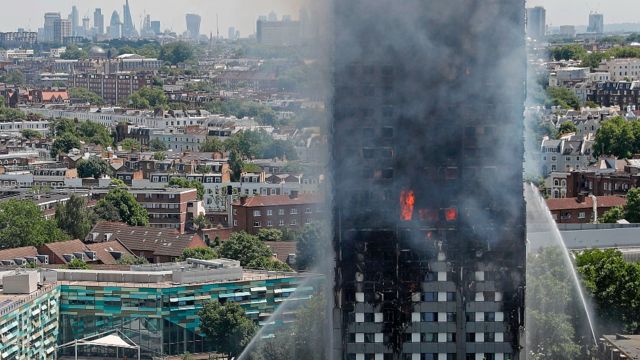
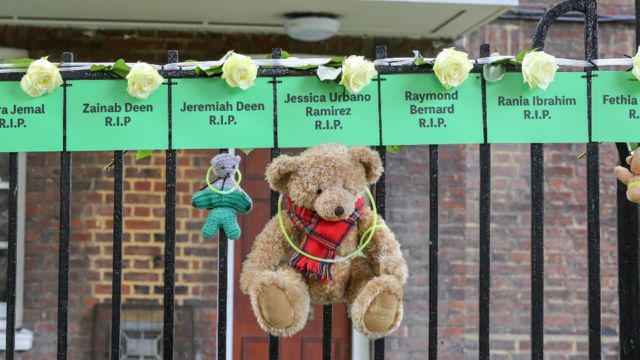

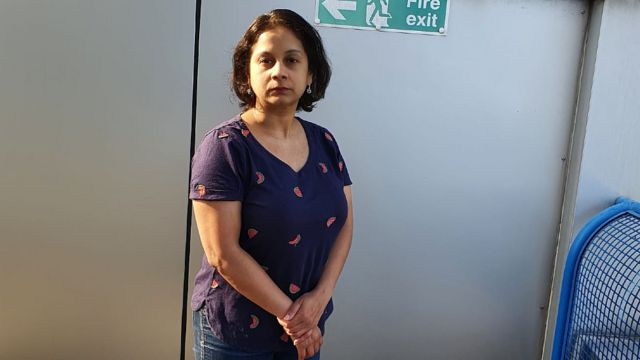
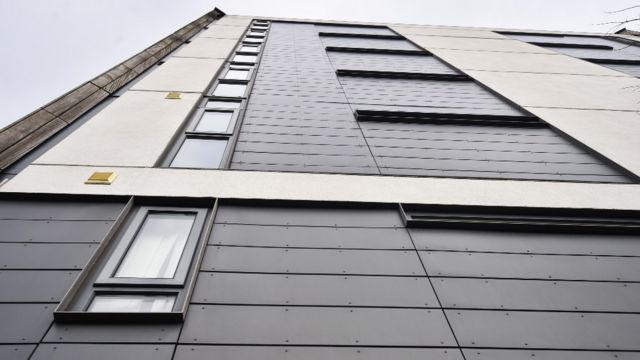
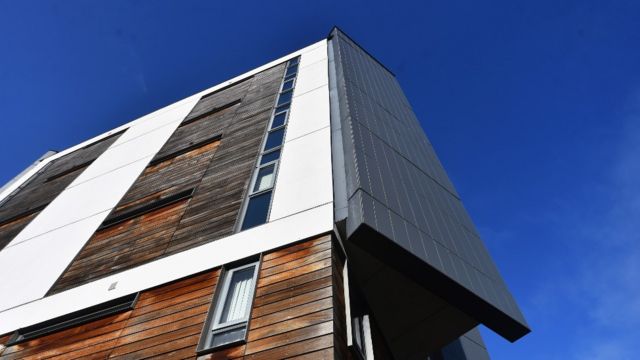
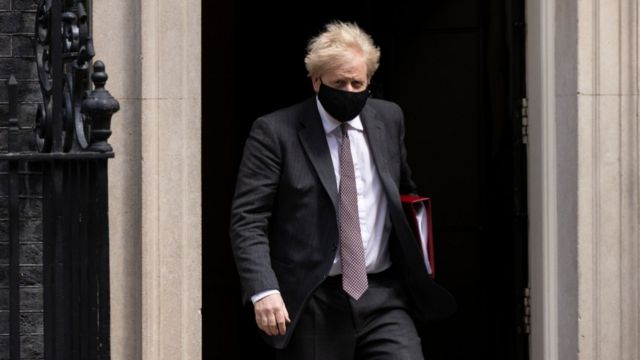
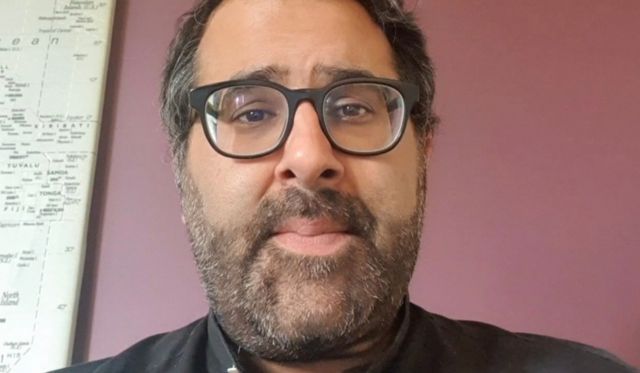
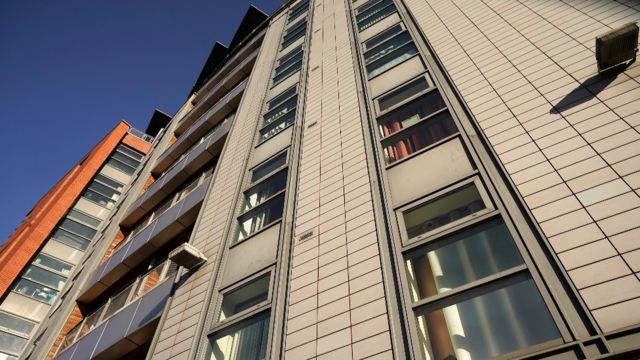

No comments:
Post a Comment